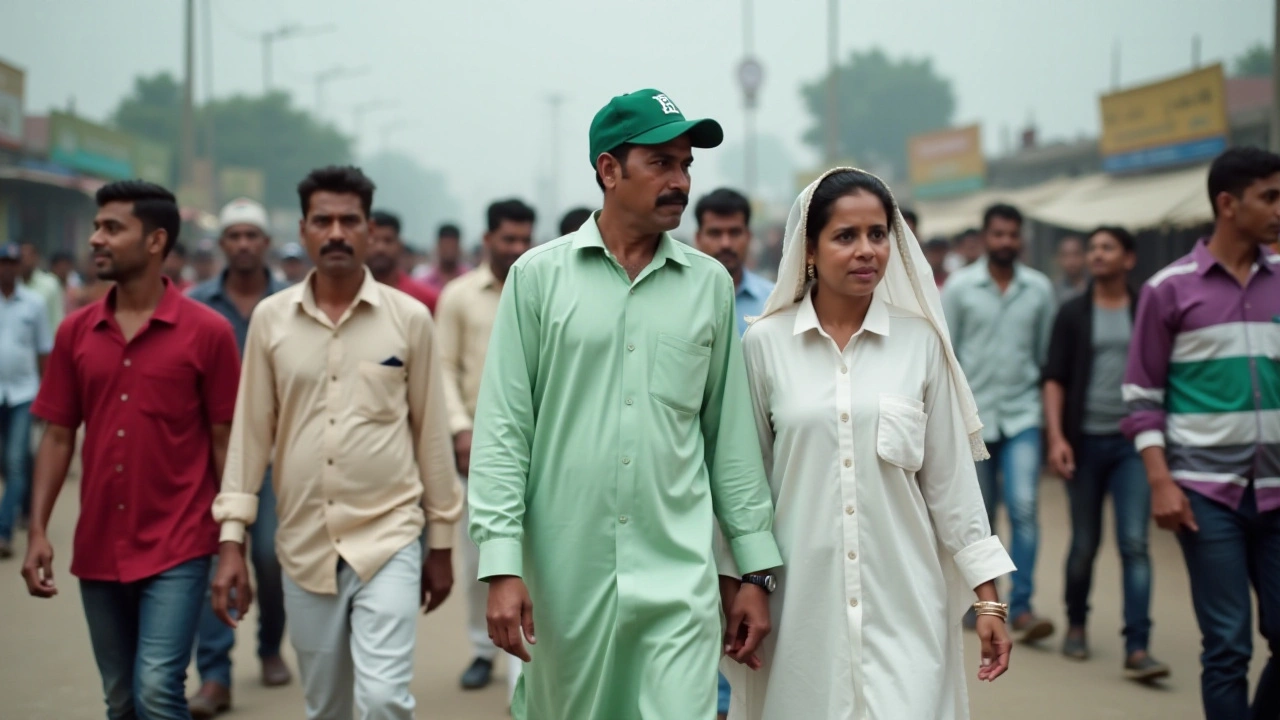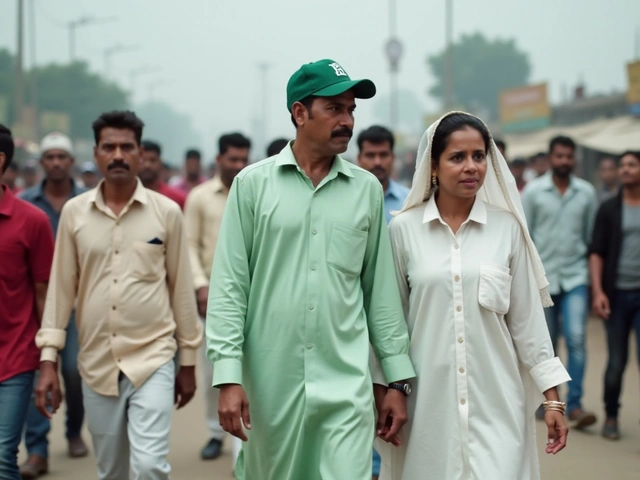The Tragic Events Leading to Criminal Charges
In what has become one of the most devastating events in Ibadan's recent history, over 35 lives were tragically lost during what was supposed to be a joyous children's funfair. Heartbreak and anger have engulfed the community as details of the incident continue to unfold. A preliminary investigation highlighted severe lapses in safety measures, leading authorities to seek accountability from those responsible for organizing the event.
This has culminated in legal proceedings against three prominent figures: Naomi Silekunola, former wife of the distinguished Ooni of Ife, Oriyomi Hamzat, a well-known radio proprietor, and Abdulahi Fasasi, the principal of the school involved. Their involvement in planning or oversight of the event placed them at the center of a legal storm, drawn into an 18-count criminal charge alleging conspiracy to commit murder, manslaughter, and criminal negligence.
The Legal Proceedings
An Oyo State High Court recently granted bail to the trio amidst heightened public scrutiny and demand for justice. The charges, rooted in sections 308, 344, and 517 of the Criminal Code, CAP 38, Vol II, Laws of Oyo State, 2000, reflect the gravity with which the government is treating the case. Each count presents significant legal challenges, aimed at unpacking not just the crypt of events but also the safety procedures—or lack thereof—implemented at the fair.
The Director of Public Prosecution's advice remains pending, awaiting further survey and analysis of the evidence gathered. This guidance is crucial for steering the case through the complex webs of legal examination, focusing largely on determining negligence and culpability.
Public Response and Government Action
The incident has stirred widespread public anger and sorrow, drawing intense scrutiny over safety standards at public gatherings. It has illustrated starkly the sometimes-precarious nature of event management in Nigeria, highlighting the need for stringent safety protocols and responsible governance.
The Oyo State Government's decision to press charges represents a firm stance towards eradicating negligence, a declaration that lives lost shall not be in vain. Their legal actions seek not only justice for the victims but also reassurance to a grieving public that such tragedies will not be permitted to repeat without consequence.
The Individuals at the Center
The trio facing legal action brings a tapestry of backgrounds and reputations that make this case exceptionally high-profile. Naomi Silekunola, once married to the revered Ooni of Ife, finds herself in an unfamiliar spotlight of infamy. As a figure often known for her charity endeavors, this ordeal marks a remarkable shift from her usual public narratives.
Oriyomi Hamzat, a name synonymous with media influence through his ownership of radio outlets, stands accused amid potential lapses linked to his business interests in the event. Meanwhile, Abdulahi Fasasi, the school principal, carries an additional burden with four extra charges focusing on negligence and safety failures, directly implicating his professional duty to protect the welfare of students and public attendees.
The Road Ahead
As the case unfolds, it is expected to delve deeply into the routines, decisions, and lapses that culminated in the tragedy, scrutinizing the defendants’ roles comprehensively. The extent of accountability could set precedents in Nigerian legal history, particularly in emphasizing the duties of event organizers in ensuring safety.
While the community seeks closure through these proceedings, the pain of loss serves as a stark reminder of the incident, nudging other event organizers towards more stringent safety protocols. As legal experts await the Director of Public Prosecution's directions, the focus remains on constructing a legally sound argument that finely balances justice, defends public interest, and respects the complex emotions tethering the city in grief.



Comments
It is evident that the authorities have chosen a superficial narrative, painting the bail as a benevolent act while ignoring the systemic negligence that led to the catastrophe. The involvement of high‑profile individuals does not absolve the deeper administrative failures that permitted such an event to unfold. One must question whether the legal proceedings are driven by genuine accountability or by the optics of appeasing a grieving public.
Yo this whole bail drama feels like a circus act, folks are cheering while the real victims get left in the dust. The law should slap those who let a kids fair turn into a massacre, not hand out sweet deals. We need tighter safety rules now
i really feel sooo sad for the families, its hrtbreaking to see life lost at a funfair. we gotta stand together and push for better safety so this never happens again. stay strong everyone
Honestly, the news hits hard 😢 but let’s keep hope that the courts will sort this out fairly. It’s a brutal reminder that event planning needs real oversight.
The community’s grief is palpable and the call for stricter regulations is both reasonable and necessary. Safety must be prioritized above all else.
Exactly, Holly! It's crucial we learn from this tragedy and push for mandatory safety audits for any public gathering 😊. I’ve seen similar reforms work well in other regions, so let’s keep the momentum.
Oh great, another headline about “justice” while the real issue-how a funfair became a death trap-gets glossed over. The drama of bail versus bloodshed makes for prime TV, but where’s the real change?
Seems like the media’s just spitting the same tired line about “accountability” without any real depth.
Let me unpack this whole saga for anyone still trying to make sense of the legal circus that has descended upon Ibadan. First, the fact that three high‑profile figures are being charged suggests a deliberate attempt by the state to showcase a zero‑tolerance stance, but it also raises eyebrows about scapegoating. Second, the charges themselves-conspiracy to commit murder, manslaughter, criminal negligence-are not just buzzwords; they carry heavy evidentiary burdens that the prosecutors have yet to fully articulate. Third, the bail granted to the defendants may be seen as a procedural courtesy, yet it could also be interpreted as the judiciary’s acknowledgement that the evidence is not airtight at this stage. Fourth, the public’s outrage is understandable, especially for families who lost loved ones at a gathering that was supposed to be safe and joyous. Fifth, the systemic failures-lack of crowd control, inadequate emergency exits, and absent risk assessments-paint a picture of negligence that goes far beyond any single individual’s misstep. Sixth, the media’s focus on the former wife of the Ooni and the radio mogul adds a sensational layer that distracts from the deeper institutional flaws. Seventh, one must ask whether the school principal truly had the authority to enforce safety protocols or whether he was merely a figurehead in a flawed bureaucratic system. Eighth, the legal precedent set by this case could either tighten regulations for all public events or become a hollow victory that fails to enforce real change. Ninth, the role of the Director of Public Prosecution will be pivotal, as his guidance could shape the direction of the trial and the eventual verdict. Tenth, the community’s demand for justice should not be wielded as a political tool but as a genuine call for accountability. Eleventh, any reform that emerges must be grounded in concrete measures-mandatory safety audits, trained emergency personnel, and transparent reporting mechanisms. Twelfth, the tragedy serves as a stark reminder that economic or entertainment pressures must never override human life. Thirteenth, while the bail decision may soothe some immediate concerns, it also prolongs the legal process, extending the pain for victims’ families. Fourteenth, the involvement of influential personalities could either amplify the call for reform or dilute it if they are allowed to escape meaningful consequences. Fifteenth, I urge the courts to scrutinize every piece of evidence with laser precision, ensuring that justice is not only seen but felt. Finally, let this calamity be the catalyst for an overhaul of event safety standards across Nigeria, lest we witness another preventable disaster.
While you’ve laid out an impressive litany of points, the reality on the ground is that these “systemic failures” are often just bureaucratic excuses to mask outright incompetence. The bail isn’t a free pass; it’s a legal pause while the proper facts are sifted.
Behold, dear compatriots, as the courtroom becomes a stage where tragedy and justice perform an uneasy pas de deux; the very air crackles with the tension of destiny, and yet the banality of bail proceedings threatens to mute the chorus of the bereaved.
Keith, your poetic flair is noted, yet the key takeaway remains the need for stringent safety protocols and transparent investigations. Let’s focus on actionable steps rather than dramatics.
Safety first.
Interestingly, while everyone clamors for swift retribution, one could argue that an overly aggressive legal pursuit might inadvertently obscure the nuanced lessons this tragedy teaches about governance, culture, and community responsibility.
Indeed, the situation is complex, multifaceted, and demands a careful, methodical approach, not a rushed, reactionary verdict; we must consider the legal statutes, the sociopolitical context, and the human element, all intertwined in this sorrowful tapestry.
Wow, that was a mouthful, but the point is clear – too much talk, not enough action.
We need to unite, not divide. It's time for all stakeholders to step up, enforce stricter standards, and ensure no community endures this pain again.
Charlotte, your call for collective responsibility resonates deeply. Let us channel this resolve into concrete policy reforms and rigorous enforcement, thereby safeguarding future generations.